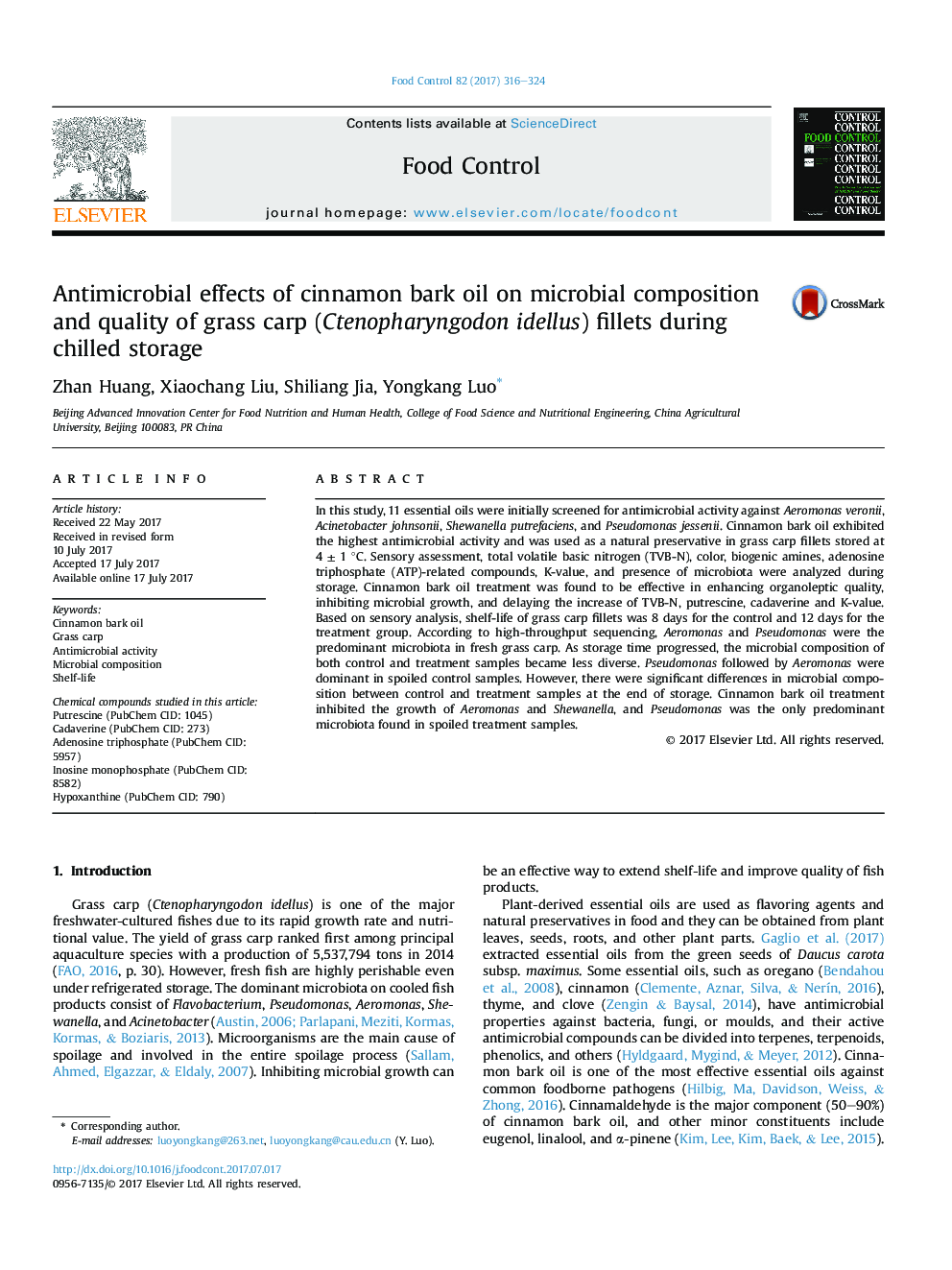| Article ID | Journal | Published Year | Pages | File Type |
|---|---|---|---|---|
| 5767165 | Food Control | 2017 | 9 Pages |
Abstract
In this study, 11 essential oils were initially screened for antimicrobial activity against Aeromonas veronii, Acinetobacter johnsonii, Shewanella putrefaciens, and Pseudomonas jessenii. Cinnamon bark oil exhibited the highest antimicrobial activity and was used as a natural preservative in grass carp fillets stored at 4 ± 1 °C. Sensory assessment, total volatile basic nitrogen (TVB-N), color, biogenic amines, adenosine triphosphate (ATP)-related compounds, K-value, and presence of microbiota were analyzed during storage. Cinnamon bark oil treatment was found to be effective in enhancing organoleptic quality, inhibiting microbial growth, and delaying the increase of TVB-N, putrescine, cadaverine and K-value. Based on sensory analysis, shelf-life of grass carp fillets was 8 days for the control and 12 days for the treatment group. According to high-throughput sequencing, Aeromonas and Pseudomonas were the predominant microbiota in fresh grass carp. As storage time progressed, the microbial composition of both control and treatment samples became less diverse. Pseudomonas followed by Aeromonas were dominant in spoiled control samples. However, there were significant differences in microbial composition between control and treatment samples at the end of storage. Cinnamon bark oil treatment inhibited the growth of Aeromonas and Shewanella, and Pseudomonas was the only predominant microbiota found in spoiled treatment samples.
Keywords
Related Topics
Life Sciences
Agricultural and Biological Sciences
Food Science
Authors
Zhan Huang, Xiaochang Liu, Shiliang Jia, Yongkang Luo,
